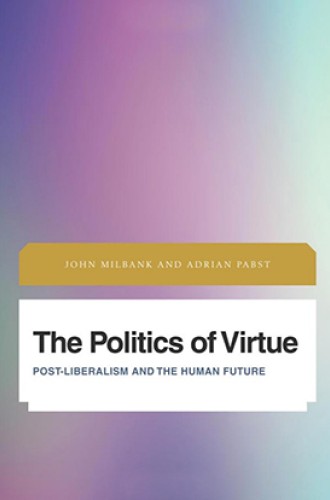A cure for liberalism?
John Milbank & Adrian Pabst consider Western society’s many problems and offer a prescription: virtue.
This book could perhaps be called prophetic in that it elucidates a crisis that the Brexit vote and the election of Trump now so vividly epitomize. Democracy has yielded oligarchies and the tyranny of majorities; capitalism has become criminalized and venal; there’s a pervasive sense of a society that’s losing the adhesive qualities we thought held it together. John Milbank and Adrian Pabst, never short of a grand phrase, call this the “metacrisis of liberalism.”
What is liberalism? Philosophically, it’s a position that “refuses to accept anything not rationally proven or demonstrable” and “disallows any public influence for the non-proven—the emotively or faithfully affirmed.” It believes we are “isolated, autonomous individuals whose activities can only be coordinated by an absolutely sovereign center, holding a monopoly of violence, power and ultimate decision making.” It has economic and political manifestations, contrasting the free market with the bureaucratic state à la Reagan and Thatcher, yet also social and cultural dimensions, insisting on individual rights and equality of opportunity for self-expression. Crucially, it regards the economic and political as prior to social bonds and cultural ties, making the latter subject to law and contract.
Sociologically, liberalism became normative beginning in the 1950s: “after that decade, the whole of social reality, including the family, became gradually capitalised and commodified, through the construction of ‘the consumer’ rather than ‘the worker’ as the crucial economic and cultural actor.”






